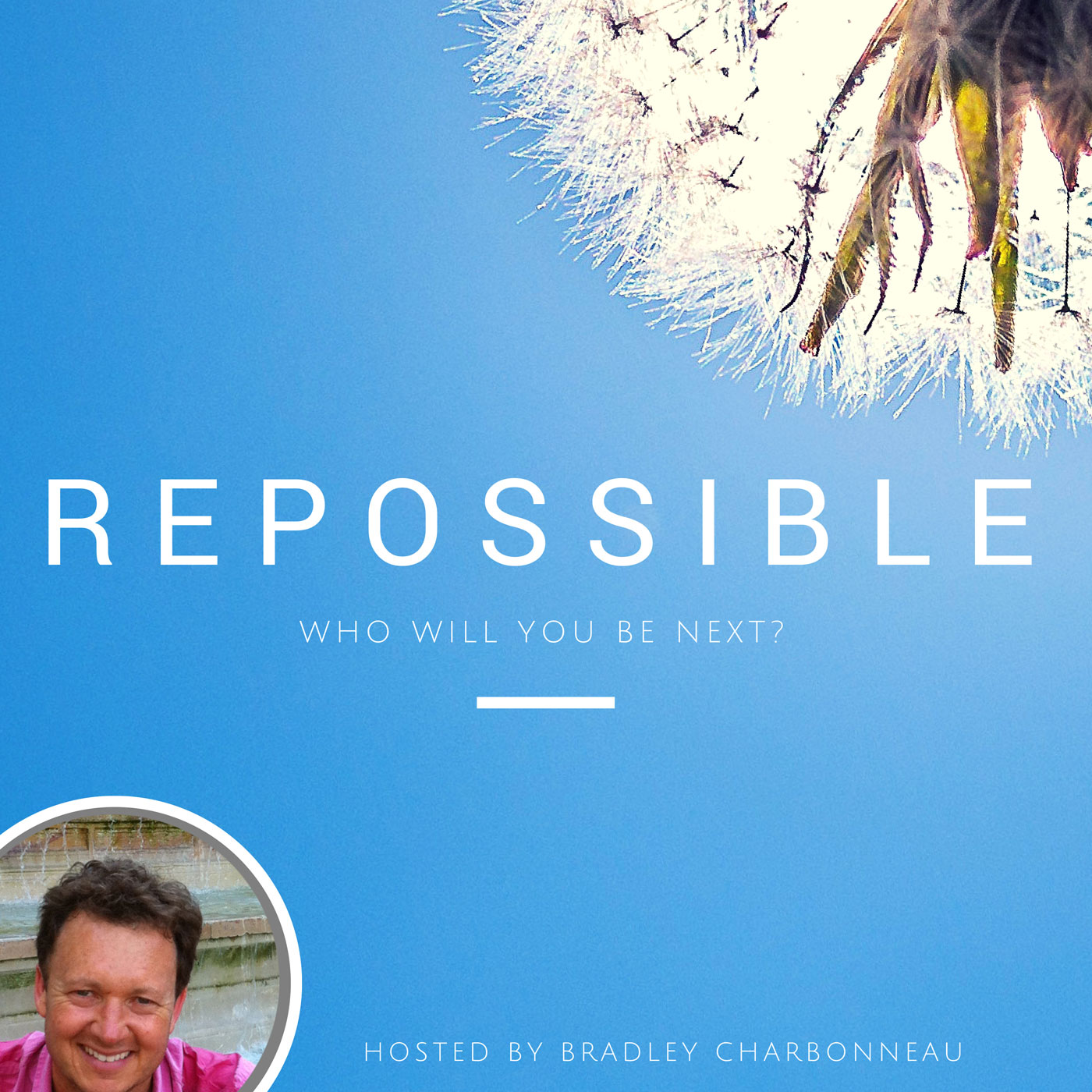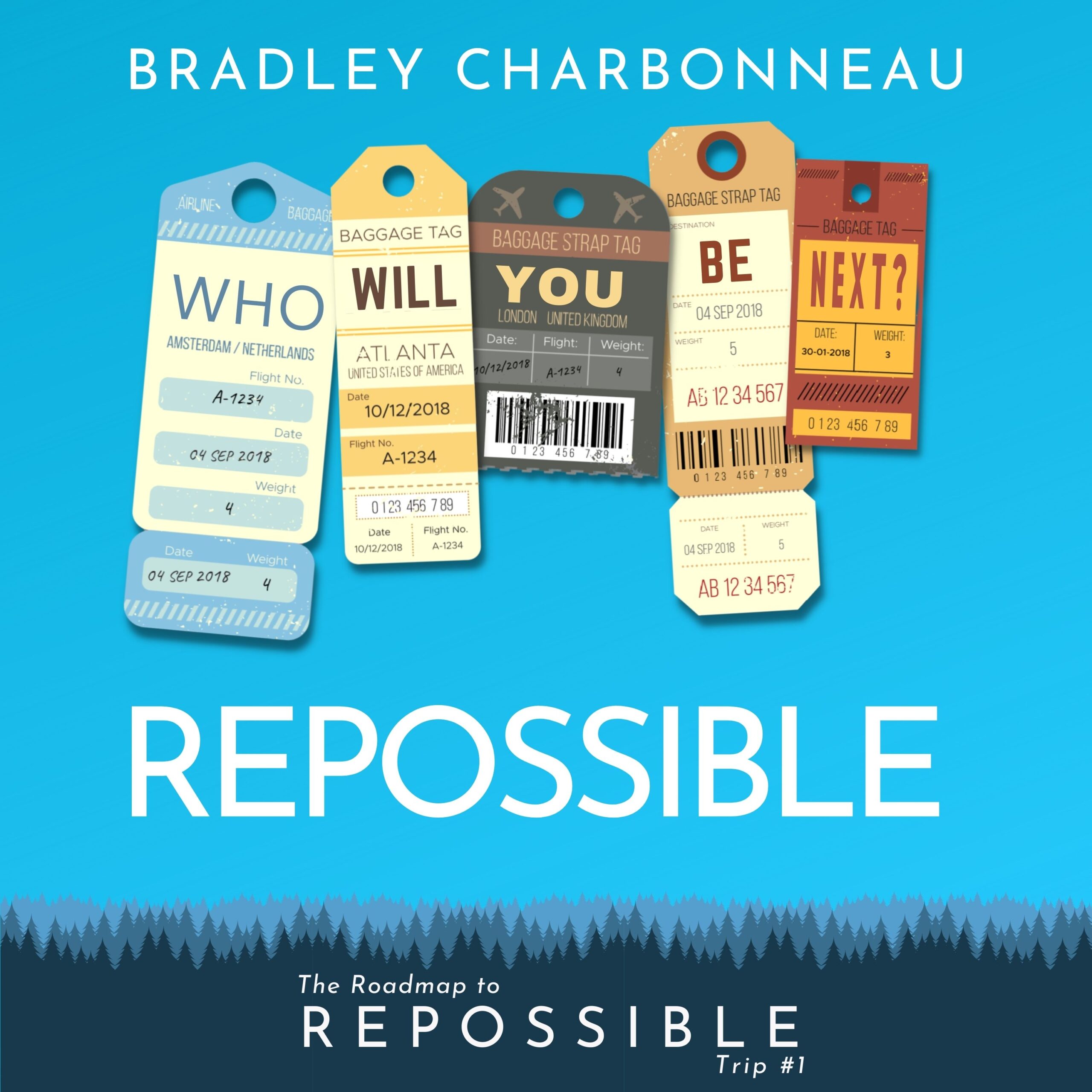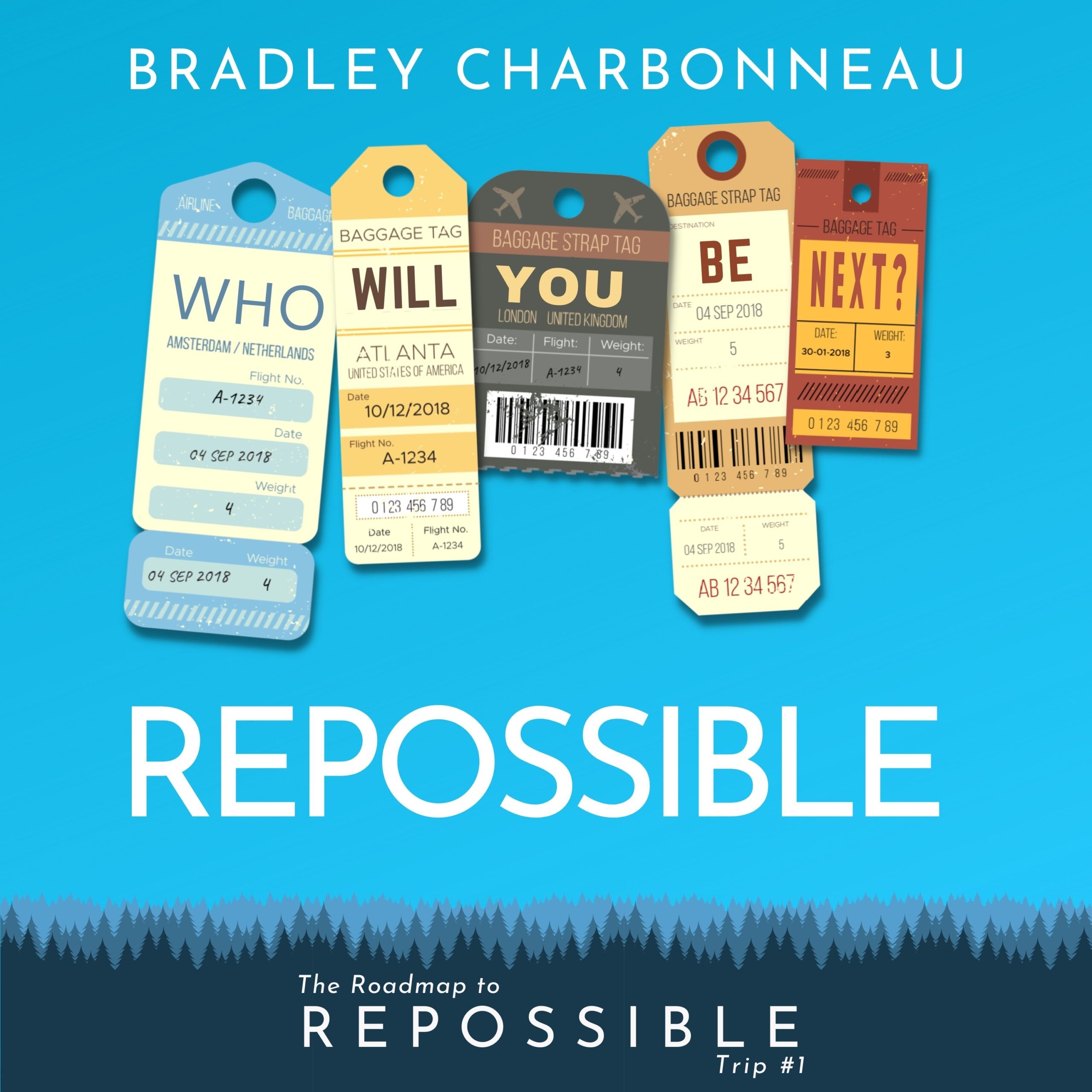Episode Transcript
[00:00:00] Speaker A: All right, so today we're going deep on something I think a lot of you listening have probably thought about at one point or another.
[00:00:05] Speaker B: Oh, yeah, for sure.
[00:00:06] Speaker A: And that's what it really takes to become a published author.
[00:00:10] Speaker B: Like the actual journey, not just the success story at the end.
[00:00:13] Speaker A: Exactly. And for this one, we're going behind the scenes with a YouTube conversation between Bradley Charbonneau and an author named Elizabeth Heider.
[00:00:22] Speaker B: So just to set that up, this was recorded pretty recently.
[00:00:26] Speaker A: Yeah, just a few weeks ago.
[00:00:27] Speaker B: March 20th, to be exact. Right before a writers conference over in Amsterdam.
[00:00:31] Speaker A: Story House Works conference, which we might circle back to later.
[00:00:34] Speaker B: Yeah, if you're interested in that kind of thing.
[00:00:36] Speaker A: Definitely. But for now, what makes this conversation so interesting is it really gets into, like, the nitty gritty, the stuff you don't always hear about, like how much.
[00:00:45] Speaker B: Resilience it takes, how important it is to learn from things that might feel like failures and that really deep drive that keeps writers going.
[00:00:54] Speaker A: Yeah, because let's be real, Elizabeth Heiter's debut novel, May the Wolf Die, which got a lot of critical acclaim.
[00:01:00] Speaker B: Really great review.
[00:01:01] Speaker A: Yeah. It wasn't like an overnight success story.
[00:01:04] Speaker B: Not at all.
[00:01:05] Speaker A: It was actually the seventh book she wrote.
[00:01:07] Speaker B: Seventh.
[00:01:07] Speaker A: Which kind of blows your mind when you think about it.
[00:01:10] Speaker B: It totally reframes the idea of a debut novel. Right.
[00:01:13] Speaker A: Like, how many books are out there that we don't even know about?
[00:01:15] Speaker B: Right, exactly.
[00:01:17] Speaker A: So for all of you listening who have your own creative goals, whatever they might be, this deep dive is really going to get into those questions that keep you up at night.
[00:01:25] Speaker B: Like, how do you deal with rejection?
[00:01:26] Speaker A: Yeah. When do you know to keep pushing forward, even when it's tough?
[00:01:31] Speaker B: And how do you balance that passion for your art with the realities of, you know, actually trying to make it in the publishing world?
[00:01:37] Speaker A: So they actually start their conversation by touching on something that's super relevant for a lot of writers and probably something a lot of you've thought about too.
[00:01:44] Speaker B: Oh, yeah, for sure.
[00:01:45] Speaker A: It's that whole thing about, do you write what you're passionate about or do you try to write for the market? Like what's hot right now?
[00:01:53] Speaker B: The age old question.
[00:01:54] Speaker A: Right. And they don't spend tons of time on it, but it's definitely there in the background informing the rest of their conversation.
[00:01:59] Speaker B: Yeah. It kind of sets the stage for understanding the pressures and decisions that authors are facing, you know?
[00:02:05] Speaker A: Totally. But let's get into Elizabeth's experience specifically because she mentions that she started writing her first book when she was only, like, 21.
[00:02:14] Speaker B: Wow. So young.
[00:02:15] Speaker A: I know, right? And she actually says, looking back, that she's really glad it didn't get published then.
[00:02:20] Speaker B: Interesting.
[00:02:21] Speaker A: Yeah, she says that whole process was really important for her to just learn the ropes.
[00:02:25] Speaker B: Like a trial by fire.
[00:02:27] Speaker A: Exactly. And it makes you think, how many of us would rush to share something before it's really ready?
[00:02:31] Speaker B: Well, I'm sure a lot of us would be guilty of that, for sure.
[00:02:34] Speaker A: But those early attempts, even if they never see the light of day, those are often the most crucial for developing your skills.
[00:02:42] Speaker B: Yeah. Like building that foundation.
[00:02:44] Speaker A: So then she talks about getting an agent in 2020, which is a big deal. Huge.
[00:02:49] Speaker B: Yeah. But it's not always a guarantee of publication.
[00:02:52] Speaker A: Nope. And even though she got an agent, the book they were working on at the time, it didn't end up getting published.
[00:02:58] Speaker B: So they went through edits, revisions, the whole nine yards.
[00:03:02] Speaker A: Yeah. And still no dice.
[00:03:03] Speaker B: But this is where it gets really interesting, because she talks about the value she got from that experience.
[00:03:07] Speaker A: Yeah. She mentions that she got some really great feedback from editors about things like pacing and structure.
[00:03:13] Speaker B: So even though that book didn't get published, she was still able to learn and grow as a writer.
[00:03:19] Speaker A: Exactly. And that's a huge takeaway for anyone listening. You know, even rejection can be a learning opportunity.
[00:03:25] Speaker B: Absolutely. So then she talks about the next book she wrote, and get this, her agent apparently hated it.
[00:03:30] Speaker A: Oh, wow. That's going to be tough.
[00:03:32] Speaker B: Yeah. But Elizabeth's perspective on it is really fascinating.
[00:03:35] Speaker A: Like, how did she handle that?
[00:03:37] Speaker B: She doesn't regret writing it at all. She loved the book and felt like it needed to exist in the world, even if it wasn't for everyone.
[00:03:43] Speaker A: So what does that tell you about her motivation for writing?
[00:03:46] Speaker B: That it's not just about external validation or success.
[00:03:51] Speaker A: It's about something deeper.
[00:03:53] Speaker B: Exactly. She has this intrinsic drive to create, to bring her stories to life.
[00:03:57] Speaker A: And you can clearly see how all this learning from those early books and the one her agent didn't love at all, led to May the Wolf Die.
[00:04:05] Speaker B: It wasn't just some lucky break. It was the culmination of years of hard work and dedication.
[00:04:11] Speaker A: And the fact that it was her seventh book, that's a powerful testament to perseverance.
[00:04:16] Speaker B: It wasn't overnight. It was years in the making.
[00:04:19] Speaker A: So this naturally leads to the question that a lot of creative people struggle with.
When do you give up?
[00:04:25] Speaker B: How many rejections are too many?
[00:04:26] Speaker A: Right. And they actually talk about this in their conversation?
[00:04:29] Speaker B: Yeah. They both seem to share this feeling of, like, they can't not write.
[00:04:32] Speaker A: It's like a compulsion almost.
[00:04:34] Speaker B: There's this great anecdote about Wayne Dyer, you know, the self help author.
[00:04:37] Speaker A: Yeah, yeah.
[00:04:38] Speaker B: He was giving a talk and said something like, I'm done with writing. But then literally the next day he started writing again.
[00:04:45] Speaker A: He couldn't help himself.
[00:04:46] Speaker B: It's like this deep seated need that a lot of artists have.
[00:04:48] Speaker A: And Elizabeth talks about how, for her, writing is really a form of communication.
[00:04:53] Speaker B: So not being published is more than just not getting recognition.
[00:04:57] Speaker A: It's like having something you want to say but not being able to share it.
[00:05:01] Speaker B: Exactly. It's about connecting with an audience.
[00:05:03] Speaker A: And they're both really upfront about the fact that writing isn't usually a path to riches.
[00:05:08] Speaker B: It's definitely not a get rich quick scheme.
[00:05:11] Speaker A: No. Most writers are doing it for the love of it, for that need to communicate.
[00:05:15] Speaker B: And Elizabeth even says that she'll keep writing even if she never gets published again. Wow.
[00:05:19] Speaker A: That's dedication.
[00:05:20] Speaker B: That's passion right there.
[00:05:21] Speaker A: And I think a lot of you listening can probably relate to that in your own creative pursuits.
[00:05:27] Speaker B: That feeling of needing to create regardless of whether or not you get external validation.
[00:05:32] Speaker A: So they also dive into Elizabeth's writing process and she describes it almost like a form of self discovery.
[00:05:37] Speaker B: Oh yeah. Like a way of figuring things out.
[00:05:39] Speaker A: Yeah. She says some. Sometimes she doesn't even know what she thinks about something until she writes it down.
[00:05:43] Speaker B: Writing can be so therapeutic in that way.
[00:05:46] Speaker A: Totally. And this is where it gets interesting because they talk about AI tools like.
[00:05:50] Speaker B: ChatGPT, which is such a hot topic right now.
[00:05:54] Speaker A: Yeah. And Bradley mentions that he's played around with it for brainstorming and even uploaded some of his writing to get suggestions.
[00:06:00] Speaker B: But Elizabeth is pretty clear that she doesn't use AI for her main writing process.
[00:06:06] Speaker A: It's not her thing.
[00:06:07] Speaker B: Yeah, she really values that struggle of finding the right words herself.
[00:06:11] Speaker A: It's like that's part of the creative process for her.
[00:06:13] Speaker B: Makes you think about where you find value in the struggle in your own creative work, for sure.
[00:06:19] Speaker A: But it's not like she's totally anti AI. She acknowledges that it can be a useful tool for certain things.
[00:06:26] Speaker B: Right, like for brainstorming or generating ideas.
[00:06:29] Speaker A: Exactly. So it's more about knowing where to draw the line.
[00:06:32] Speaker B: And then they get into this concept that Bradley calls how to write your.
[00:06:36] Speaker A: Worst book ever, which sounds kind of counterintuitive.
[00:06:39] Speaker B: It is, but it's actually really clever. Especially if you're someone who struggles with procrastination or professionism.
[00:06:45] Speaker A: So what's the idea behind it?
[00:06:47] Speaker B: Basically it's about taking the pressure off trying to write a masterpiece and just focusing on finishing something.
[00:06:52] Speaker A: Just get the words down.
[00:06:53] Speaker B: So no judgment, Just write.
[00:06:55] Speaker A: It's like that saying, if you're not falling down, you're not pushing yourself hard enough.
[00:06:59] Speaker B: You have to be willing to make mistakes to learn and grow.
[00:07:02] Speaker A: And they connect this to the idea of overcoming the negative effects of a.
[00:07:07] Speaker B: Shame based education system, which can, can really stifle creativity.
[00:07:11] Speaker A: Yeah, because you're so afraid of not being good enough.
[00:07:14] Speaker B: The key takeaway is to not be too precious with your work. Allow yourself to be imperfect.
[00:07:20] Speaker A: And then they shift gears and start talking about the move from writing to.
[00:07:24] Speaker B: Editing, which is a whole different beast.
[00:07:26] Speaker A: Elizabeth says that editing requires a completely different mindset.
[00:07:30] Speaker B: She has to become much more critical of her own work.
[00:07:33] Speaker A: Yeah. And she points out that there's a danger of over editing.
[00:07:36] Speaker B: Like you can polish something so much that it loses its spark.
[00:07:39] Speaker A: It's about finding that balance.
[00:07:40] Speaker B: Exactly. Knowing when to let go.
[00:07:42] Speaker A: And speaking of letting go, they also touch on the importance of finding humor in the creative process.
[00:07:47] Speaker B: Oh yeah, that's so important.
[00:07:48] Speaker A: Bradley tells this funny story about being in Germany and laughing at a mistake he made at the copy machine.
[00:07:55] Speaker B: And his German colleague was like totally bewildered.
[00:07:58] Speaker A: Different cultures have different ways of approaching mistakes.
[00:08:01] Speaker B: It's a good lesson for all of us.
[00:08:02] Speaker A: Don't sweat the small stuff.
[00:08:04] Speaker B: And this ties back to Elizabeth's willingness to keep writing even after her editor told her that one of her books was weird.
[00:08:11] Speaker A: She didn't let that stop her because.
[00:08:13] Speaker B: It'S not about instant perfection, it's about continuous improvement.
[00:08:16] Speaker A: Exactly. And Elizabeth emphasizes that May the Wolf Die was the best book she could write at that time.
[00:08:22] Speaker B: And that's an important distinction.
[00:08:24] Speaker A: You're always evolving as a writer.
[00:08:26] Speaker B: She also mentions her seven book series.
[00:08:28] Speaker A: Which is a huge undertaking.
[00:08:29] Speaker B: And she says that she wants each book to push her boundaries, to challenge her as a writer.
[00:08:34] Speaker A: Like she's intentionally trying to get better with each book.
[00:08:37] Speaker B: That's the kind of dedication it takes.
[00:08:38] Speaker A: And it all comes back to that idea of the worst book ever, but with a twist.
[00:08:44] Speaker B: It's not about intentionally writing something bad.
[00:08:46] Speaker A: It's about writing the best book you can at this moment in time, knowing.
[00:08:52] Speaker B: That your best will keep getting better over time.
[00:08:54] Speaker A: So Elizabeth also talks about how she can see the evolution in her own writing when she looks back at her earlier work.
[00:09:00] Speaker B: She's grown as a person and that's reflected in her writing.
[00:09:03] Speaker A: And they use the example of Jean Le Carre, the spy novelist.
[00:09:06] Speaker B: His early work is very different from his later stuff.
[00:09:08] Speaker A: Yeah, he became a much more nuanced writer over time.
[00:09:11] Speaker B: It's all part of the journey.
[00:09:13] Speaker A: And Elizabeth expresses this hope for her own continuous growth as a writer.
[00:09:18] Speaker B: She wants to keep learning and developing her craft.
[00:09:21] Speaker A: Which leads us to her really ambitious plan for her seven book series.
[00:09:25] Speaker B: Seven books. That's a commitment.
[00:09:27] Speaker A: And she actually has the ending of the entire series planned out.
[00:09:31] Speaker B: Wow, that's impressive.
[00:09:32] Speaker A: But she also admits that she doesn't have the skill or understanding to write that final book right now.
[00:09:38] Speaker B: She knows she needs to keep growing and evolving.
[00:09:40] Speaker A: It's like a long term vision that requires both personal and creative development.
[00:09:45] Speaker B: It's about trusting the process.
[00:09:47] Speaker A: And they touch briefly on the panel discussion that Elisabeth is doing at the writers Conference in Amsterdam, the one I mentioned earlier. Yeah, it's all about traditional versus non traditional publishing, like self publishing. And Elizabeth says she's really curious to hear from other authors about their experiences.
[00:10:03] Speaker B: She's still learning. Always. And this panel is designed to help aspiring writers figure out the best path for their own work.
[00:10:10] Speaker A: So as we wrap up this deep dive, what are the key takeaways for you, the listener?
[00:10:15] Speaker B: I mean, we've covered a lot of ground.
[00:10:16] Speaker A: We have.
[00:10:17] Speaker B: But I think the biggest thing is the importance of perseverance.
[00:10:21] Speaker A: Never give up.
[00:10:22] Speaker B: And learning from your setbacks and that.
[00:10:24] Speaker A: Inner drive that keeps you creating, that.
[00:10:26] Speaker B: Passion that keeps you going.
[00:10:28] Speaker A: We've also talked about the need to embrace imperfection.
[00:10:31] Speaker B: It's all part of the process.
[00:10:33] Speaker A: And to remember that becoming a better creative is a lifelong journey.
[00:10:36] Speaker B: It's about constant improvement.
[00:10:38] Speaker A: And what I find really inspiring is that even after achieving success with May the Wolf Die, Elizabeth is still so focused on learning and growing.
[00:10:48] Speaker B: It's not about reaching the finish line. It's about the journey.
[00:10:52] Speaker A: Exactly. So here's a final thought for you. What? What weird or unconventional idea or project are you currently setting aside?
[00:11:00] Speaker B: The one you think isn't good enough?
[00:11:02] Speaker A: What if that idea actually holds the potential for your greatest growth?
[00:11:06] Speaker B: Even if right now it feels like the worst version of it, Maybe it's.
[00:11:09] Speaker A: Time to revisit those ideas with a fresh perspective.
[00:11:12] Speaker B: See where they might lead you.
[00:11:14] Speaker A: And if you're interested in learning more about writers conferences and resources like Story.
[00:11:18] Speaker B: Houseworks, even though the date is passed.
[00:11:21] Speaker A: You can still find them online.
[00:11:22] Speaker B: They're a great source of information and inspiration.
[00:11:25] Speaker A: So go check them out and keep.
[00:11:26] Speaker B: Creating until next time.


